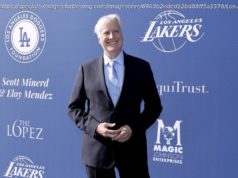Trump has been vague on what the package involves, but it is likely to cover much more than just the previously announced steel and aluminium tariffs
US President Donald Trump is preparing to impose a package of US$60 billion in annual tariffs against China, following through on a long-time threat that he says will punish Beijing for intellectual property infringement and create more American jobs.
The tariff package, which Trump plans to unveil by Friday, was confirmed by four senior administration officials.
Senior aides had presented Trump with a US$30 billion tariff package that would apply to a range of products, but Trump directed them to roughly double the scope of the new trade levies.
The package could be applied to more than 100 products, which Trump argues were developed by using trade secrets the Chinese stole from US companies or forced them to hand over in exchange for market access.
Trump has been vague on what the package involves, but it is likely to cover much more than just the previously announced steel and aluminium tariffs, since China exports relatively small amounts of those metals to the US.
The situation remains fluid, and Trump has shown a tendency to back off economic threats at the last minute. In recent weeks, however, he has shown a willingness to unilaterally impose tariffs – even amid objections from advisers who fear starting a global trade war.
And several administration officials said Trump was particularly determined to follow through on this specific set of tariffs, as criticism of US-China relations was at the centre of his presidential campaign.
Trump plans to impose the tariffs at a time when he has much of the world on edge over his pivot to protectionism.
His 2016 campaign was built around promises to put “America First” on every issue, but some aides managed to scale back his plans for trade restrictions in 2017 as he muscled a tax-cut bill through Congress.
That has changed this year, however, with the tax bill signed into law and some of the people who had warned against protectionism exiting the White House.
One of Trump’s top advisers, Treasury Secretary Steven Mnuchin, is in Buenos Aires on Monday and Tuesday meeting with global finance ministers. The foreign officials are trying to determine whether Trump plans to follow through on his threats to engage in a “trade war.”
Many of the financial ministers at the meeting have alleged that China should make changes to its trade policies, but so far most have tried to cajole Beijing multilaterally, a strategy that Trump has said doesn’t work.
Still, Trump’s approach to China has been uneven. He has tried to both befriend Chinese leader Xi Jinping while also isolate him, particularly on economic issues.
On Sunday, the Treasury Department had to backtrack on an embarrassing misstep when a senior official said he had suspended economic talks with China, when a formal decision had not yet been made.






